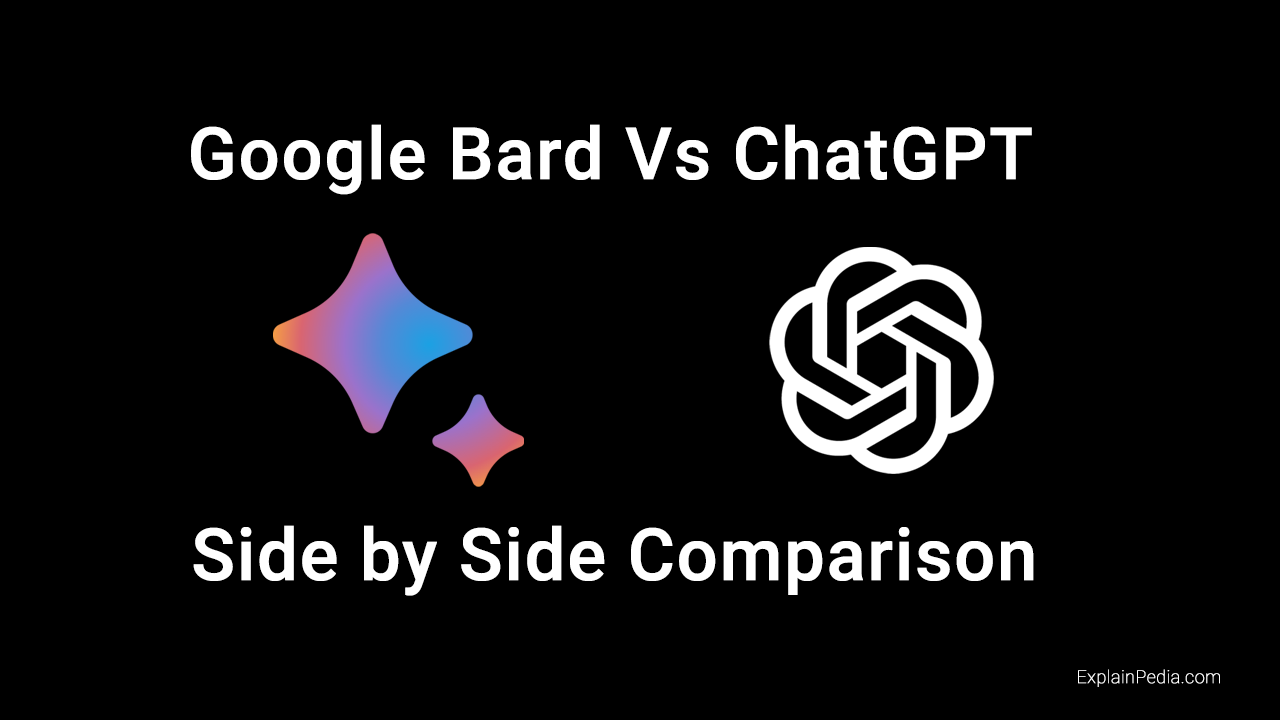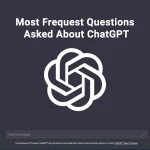Google Bard vs ChatGPT is a very trending debate on the internet. Google Bard and ChatGPT are two of the most advanced AI chatbots on the market. Both models are trained on massive datasets of text and code, and they can generate text, translate languages, write different kinds of creative content, and answer your questions in an informative way.
So, which AI chatbot is better? Here’s a comparison of Google Bard and ChatGPT to help you decide.
Introduction to Google Bard and ChatGPT?
Google Bard is a chatbot that can answer your questions, generate text, translate languages, write different kinds of creative content, and is still under development. It was released in March 2023, and is currently in beta testing.
OpenAI released ChatGPT, an AI chatbot, in November 2022, which was built using OpenAI’s GPT-3.5 and GPT-4 foundational large language models (LLMs) and fine-tuned using both supervised and reinforcement learning techniques. ChatGPT was launched as a prototype on November 30, 2022, and quickly became popular for its detailed responses and articulate answers across multiple domains of knowledge. As of May 7, 2023, ChatGPT has amassed over 100 million users.
Google Bard Vs ChatGPT : Data
Google Bard and ChatGPT are both large language models, but they have different data sources. Bard is trained on a massive dataset of text and code, including text from the internet, books, and code repositories. ChatGPT is trained on a dataset of text and code that is up to 2021. This means that Bard has access to more recent information and can provide more accurate answers to questions.
Here is a table that summarizes the differences in data sources between Bard and ChatGPT:
| Feature | Bard | ChatGPT |
|---|---|---|
| Data source | Text and code from the internet, books, and code repositories | Text and code up to 2021 |
| Access to recent information | Yes | No |
| Accuracy of answers | More accurate | Less accurate |
| Size | 1.56 trillion parameters | 1.37 billion parameters |
| Points | 100 | 80 |
Overall, Bard has a more comprehensive data source than ChatGPT, which allows it to provide more accurate answers to questions. However, it is important to note that both Bard and ChatGPT are still under development, and their accuracy may vary depending on the specific question.
Google Bard Vs ChatGPT : Capabilities
Google Bard and ChatGPT are both large language models, but they have different strengths and weaknesses. Google Bard is better at answering questions and summarizing text, while ChatGPT is better at generating creative content.
Following is aa table of the capabilities of Google Bard and ChatGPT:
| Capability | Google Bard | ChatGPT |
|---|---|---|
| Accuracy | More accurate than ChatGPT | Not as accurate as Google Bard |
| Summarization | Better at summarizing text | Not as good at summarizing text |
| Informative | More informative than ChatGPT | Not as informative as Google Bard |
| Comprehensive | More comprehensive than ChatGPT | Not as comprehensive as Google Bard |
| Creativity | Not as creative as ChatGPT | More creative than Google Bard |
| Generation of creative text formats | Not as good at generating different creative text formats | Can generate different creative text formats |
| Response time | Can be slow to respond | Faster to respond |
| Engagement | Not as engaging as ChatGPT | More engaging than Google Bard |
Ultimately, the best language model for you will depend on your needs. If you need a language model that is accurate and informative, then Google Bard is the better choice. If you need a language model that is creative and engaging, then ChatGPT is the better choice.
Google Bard Vs ChatGPT : Availability
Google Bard and ChatGPT are both large language models, but they have different availability. Google Bard is currently in beta and is only available to a limited number of users. ChatGPT, on the other hand, is available to the public.
| Availability | Google Bard | ChatGPT |
|---|---|---|
| Availability | In beta, limited access | Publicly available |
| Languages | English | English, French, German, Spanish, Italian, Portuguese, Russian, Chinese, Japanese, and Korean |
| Access | Apply for access through the Google AI website | Go to the OpenAI website and sign up for an account |
Google Bard Vs ChatGPT : Security and Privacy
Google Bard and ChatGPT are both large language models, but they have different security and privacy features.
Here is the comparison of various security and Privacy parameters:
- Training data
- Google Bard is trained on a massive dataset of text and code, which includes some sensitive information. To protect this information, Google Bard is trained with privacy-preserving techniques.
- ChatGPT is trained on a dataset of text and code that has been generated by humans. This means that ChatGPT is more likely to contain sensitive information than Google Bard.
- Data collection and storage
- Google Bard collects and stores data in accordance with Google’s privacy policies. These policies are designed to protect the privacy of users’ data.
- ChatGPT collects and stores data in accordance with OpenAI’s privacy policies. These policies are not as comprehensive as Google’s privacy policies.
- Data access and use
- Google Bard only grants access to users’ data to authorized personnel. This helps to protect the privacy of users’ data.
- ChatGPT may grant access to users’ data to third-party companies. This could potentially put users’ privacy at risk.
- Data security
- Google Bard takes steps to protect the security of users’ data. These steps include using encryption and firewalls.
- ChatGPT may not take the same steps to protect the security of users’ data. This could potentially put users’ privacy at risk.
- Data deletion
- Google Bard allows users to delete their data at any time. This helps to give users control over their privacy.
- ChatGPT may not allow users to delete their data. This could potentially put users’ privacy at risk.
- Transparency
- Google Bard is transparent about how it collects, stores, and uses users’ data. This helps users to make informed decisions about whether or not to use Google Bard.
- ChatGPT is not as transparent about how it collects, stores, and uses users’ data. This could make it difficult for users to make informed decisions about whether or not to use ChatGPT.
- User control
- Google Bard gives users control over their data. This includes the ability to access, delete, and export their data.
- ChatGPT may not give users the same level of control over their data. This could make it difficult for users to protect their privacy.
- Security audits
- Google Bard undergoes regular security audits. This helps to ensure that Google Bard is secure and that users’ data is protected.
- ChatGPT may not undergo regular security audits. This could put users’ privacy at risk.
- Compliance with laws and regulations
- Google Bard complies with all applicable laws and regulations. This helps to protect users’ privacy.
- ChatGPT may not comply with all applicable laws and regulations. This could put users’ privacy at risk.
- Reputation
- Google has a good reputation for protecting the privacy of its users.
- OpenAI has a less established reputation for protecting the privacy of its users.
- User feedback
- Google Bard allows users to provide feedback on how their data is being used. This helps Google to improve its privacy practices.
- ChatGPT does not allow users to provide feedback on how their data is being used. This could make it difficult for OpenAI to identify and address privacy concerns.
- Accountability
- Google is a publicly traded company, which means that it is accountable to its shareholders. This helps to ensure that Google is committed to protecting the privacy of its users.
- OpenAI is a private company, which means that it is not accountable to the public. This could make it more difficult for users to hold OpenAI accountable for its privacy practices.
- Trust
- Google has a long history of protecting the privacy of its users. This helps to build trust between Google and its users.
- OpenAI is a newer company, and it has not had the same opportunity to build trust with its users. This could make users more hesitant to use ChatGPT.
Sure, here is a table of the security and privacy features of Google Bard and ChatGPT:
| Feature | Google Bard | ChatGPT |
|---|---|---|
| Accountability | Google is accountable to its shareholders | OpenAI is not accountable to the public |
| Compliance with laws and regulations | Complies with all applicable laws and regulations | May not comply with all applicable laws and regulations |
| Data access and use | Only granted to authorized personnel | May be granted to third-party companies |
| Data collection and storage | Collected and stored in accordance with Google’s privacy policies | Collected and stored in accordance with OpenAI’s privacy policies |
| Data deletion | Users can delete their data at any time | Users may not be able to delete their data |
| Data security | Protected using encryption and firewalls | May not be protected as well |
| Reputation | Google has a good reputation for protecting the privacy of its users | OpenAI has a less established reputation for protecting the privacy of its users |
| Security audits | Undergoes regular security audits | May not undergo regular security audits |
| Training data | Trained with privacy-preserving techniques | Not trained with privacy-preserving techniques |
| Transparency | Google is transparent about how it collects, stores, and uses users’ data | OpenAI is not as transparent about how it collects, stores, and uses users’ data |
| Trust | Google has a long history of protecting the privacy of its users | OpenAI is a newer company and has not had the same opportunity to build trust with its users |
| User control | Users have control over their data | Users may not have as much control over their data |
| User feedback | Users can provide feedback on how their data is being used | Users cannot provide feedback on how their data is being used |
Ultimately, the best language model for you will depend on your needs. If you are concerned about security and privacy
Google Bard Vs ChatGPT : Cost
Both Google Bard and ChatGPT are large language models that can be used for a variety of tasks, such as generating text, translating languages, writing different kinds of creative content, and answering your questions in an informative way. However, there are a few key differences between the two models, including cost and features.
Google Bard is free to use, while ChatGPT has a paid subscription model. The cost of a ChatGPT subscription varies depending on the length of the subscription and the features that are included. For example, a monthly subscription for the basic plan costs $20, while a yearly subscription for the premium plan costs $120.
Please note that ChatGPT 3.5 is freely avaiable while ChatGPT 4 or ChatGPT Plus Costs $20.
In terms of features, ChatGPT offers a number of features that are not available in Google Bard, such as the ability to generate different creative text formats, like poems, code, scripts, musical pieces, email, letters, etc., and the ability to answer your questions in an informative way, even if they are open ended, challenging, or strange. These features require more computing power and resources, which is why ChatGPT charges for them.
Conclusion
To conclude, Google Bard and ChatGPT are both large language models, but they have some key differences. Google Bard is trained on a larger dataset of text and code, which gives it a wider range of knowledge and allows it to generate more comprehensive and informative responses. Google Bard is also generally more accurate than ChatGPT, especially for factual questions. ChatGPT is generally more creative than Google Bard, especially when it comes to generating different creative text formats. ChatGPT is also generally less biased than Google Bard. Finally, Google Bard is developed with a strong focus on ethics and safety, while ChatGPT has been criticized for its potential to generate harmful content. Ultimately, the best AI chatbot for you will depend on your individual needs and preferences. Consider the factors above when making your decision.
Disclaimer: This article is generated using google Bard.
- Leonardo AI: Secrets of Powerful AI art Studio - May 20, 2023
- Google Bard Features :Easily Available to Everyone - May 12, 2023
- Google Bard vs ChatGPT: No. 1 The Ultimate Guide - May 7, 2023






